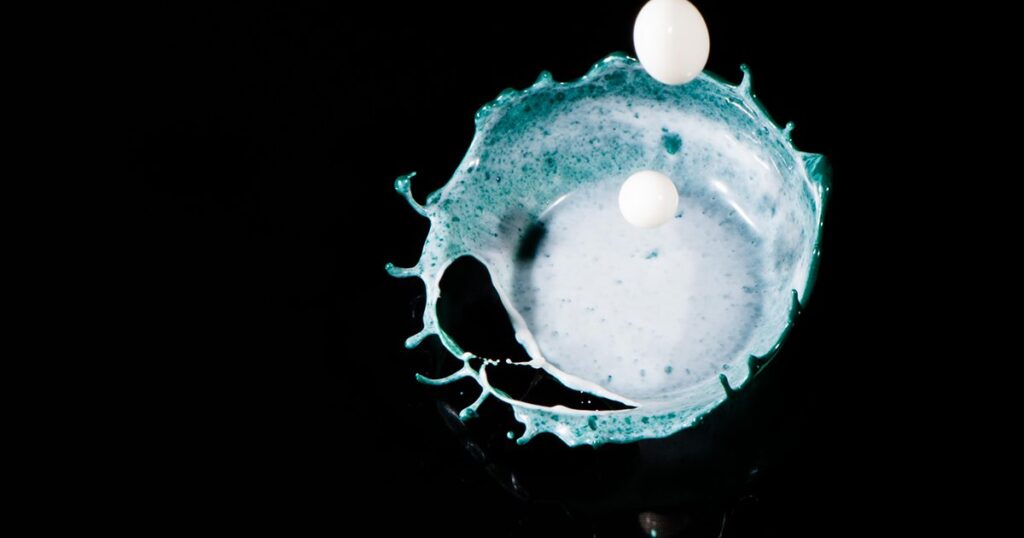One of the most preferred treatment methods for couples unable to conceive is in vitro fertilization (IVF). Moreover, the health of the father-to-be is as important as the mother-to-be’s health in achieving successful results in IVF treatment. Therefore, the role of men in IVF is extremely significant. In particular, the question “Can IVF be performed with immotile sperm?” is highly intriguing.
Sperm motility is one of the most crucial criteria for sperm to reach the egg and for fertilization to occur. If sperm are not capable of moving through the female reproductive tract, the union of the egg and sperm cells is physically impossible. Hence, inadequate sperm motility is considered one of the male-related causes of infertility.
In this article, we will provide detailed information on the role of sperm motility in IVF, whether IVF can be performed with immotile sperm, the success rates of the treatment process, and what to expect.

How Does Sperm Motility Affect IVF Success?
Sperm motility refers to the ability of sperm to move appropriately to reach and fertilize the female egg. This is also referred to as sperm motility. Although not all sperm need to be motile for pregnancy, the total motility of the sperm sample provided during a semen analysis test should be 40% or higher.
Additionally, the sperm must move quickly and forward for fertilization. Sperm that can only move their tails or create circular paths are insufficient for fertilization. In this context, healthy and motile sperm are essential for fertilization in IVF treatment. Low sperm motility or immobility (asthenozoospermia) can be a cause of infertility and may also reduce success rates in IVF treatment.

Is IVF Possible with Immobile Sperm? Methods Applied
For individuals with low sperm motility, it is possible to apply treatments if the motility issue stems from certain hormonal disorders or lifestyle changes. However, for problems caused by genetic factors, assisted reproductive techniques are recommended.
Intrauterine insemination (IUI), known as the artificial insemination technique, involves the direct injection of healthy and active sperm into the uterus. This procedure ensures that sperm reach the fallopian tube from the cervix. Additionally, the insemination technique can be applied to men with a total sperm motility of 5 million or more.
If insemination is insufficient or if sperm motility is less than 30%, IVF or intracytoplasmic sperm injection (ICSI) is recommended. In this treatment process, the egg retrieved from the woman is directly fertilized with sperm. The fertilized embryo is then placed in the uterus to ensure a successful pregnancy.
The process of injecting sperm into the egg to achieve fertilization is referred to as intracytoplasmic sperm injection (ICSI). This method involves preparing mature eggs through specific procedures before the ICSI process. ICSI is recommended for men with severe motility issues or very low numbers of motile sperm. When there is no sperm motility, sperm obtained from testicular tissue are used for ICSI.

Treatment Process and Success Rates: What Should I Expect?
Immobile sperm is a factor that affects the success rates of IVF treatment. However, numerous solutions are available. IVF treatment is a treatment option for couples who cannot conceive naturally. This method begins with stimulating the ovaries of the mother-to-be and collecting mature eggs. The collected eggs are fertilized with sperm cells obtained from the father-to-be in a laboratory environment. The resulting embryos are kept in the laboratory for a few days to develop and are then placed in the uterus of the mother-to-be.
The process of injecting sperm into the egg to achieve fertilization is called intracytoplasmic sperm injection (ICSI). This method is preferred in cases of male infertility. During the second stage of ICSI, the sperm is injected into the egg cell under a microscope. The fertilization process is then checked 17-18 hours after the procedure.
Another method is Micro TESE, which involves obtaining sperm from testicular tissue through a microscopic operation for men with no sperm cells. The Micro TESE procedure is performed under general anesthesia, and the testis is opened to observe the sperm canals. Enlarged sperm canals are then visualized, and sperm can be obtained from them.
In general, sperm preparation processes are more comprehensive in IVF treatments with immotile sperm. Even if fertilization is achieved with the ICSI technique, embryo development is closely monitored. The success rate of IVF treatment with immotile sperm is lower than with normal sperm parameters. However, pregnancy can still be achieved using methods performed by expert doctors. Your doctor will inform you whether IVF treatment is suitable for your specific condition and the success rates.

What Causes Low Sperm Motility?
Several medical and environmental factors affect a man’s sperm quality, shape, count, and motility. These factors generally include:
- Physical or psychological stress can impact sperm production and lead to infertility problems.
- Health issues such as hypothyroidism, diabetes, obesity, varicocele, testicular cancer, and infections can generally negatively affect sperm quality.
- Fertility problems may occur due to deficiencies in Vitamin C and Vitamin B12.
- Excessive heat around the genitals can adversely affect sperm production.
- Certain medications can cause male infertility. Therefore, every medication used should be prescribed by your doctor.
- Excessive alcohol consumption and the use of harmful substances like tobacco can lead to weak sperm count and low motility, along with causing various health problems.
- Structural problems in sperm can lead to issues in their motility. These conditions are believed to be caused by mutations in newly discovered genes.
- Defects in the organelles called mitochondria, located in the middle section responsible for sperm motility, can occur. Malfunctions in the mechanisms that enable movement in the sperm tail may cause immobility.

What Should Be Done to Improve Sperm Quality?
Making and adhering to certain lifestyle changes is essential to improving sperm quality. Adhering to these criteria can support healthy sperm production. These criteria generally include:
- Maintaining a healthy weight range
- Significantly reducing stress levels
- Exercising regularly
- Establishing a healthy eating routine
- Avoiding sexually transmitted diseases
- Quitting smoking and alcohol
- Staying away from pesticides, lead, and other toxic chemicals
- Avoiding excessive heat around the genitals
In this article, as the Kalem Bebek team, we have tried to provide detailed information on one of the most researched topics: “Can IVF Be Performed with Immobile Sperm?” For more detailed information on IVF, whether it is possible with immotile sperm, the role of the male factor in treatment, causes of low sperm motility, the success rates of the treatment process, and steps to be taken, you can click here to visit our website. You can also schedule an appointment through our website if you wish to discuss further.

 EN
EN TR
TR
